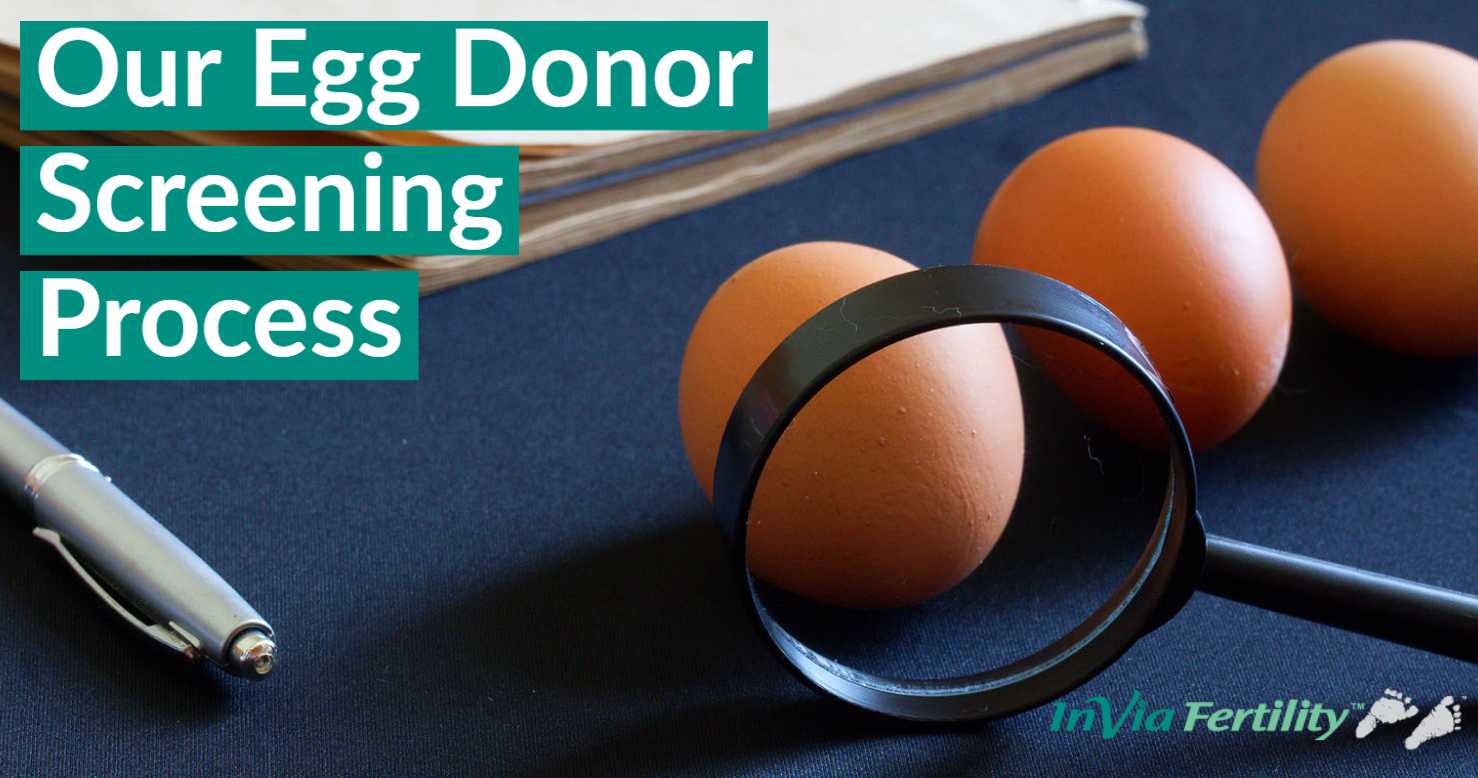
One of the questions I get asked the most is about our donor screening. How thoroughly do we screen our donors? What does the screening entail?
We screen them very strictly. Some aspects of our egg donor screening process are required by the U.S. Food and Drug Administration (FDA), and some is just what we feel is appropriate and necessary. In all, we screen our egg donors three times:
Each stage of screening involves different types of testing. The purpose of this multi-pronged approach is to ensure the donor can offer recipients the best possible chance at a healthy pregnancy and to make sure the donor is not at risk of complications that can arise from the donation process.
When a donor applies to participate in our program, they complete an application online, followed by a very thorough health history questionnaire on our portal. Then, they meet with one of our physicians and undergo cycle day three testing, which includes an ultrasound and a blood test that measures key fertility-related hormones, including:
Next, prospective donors have a phone interview with a genetic counselor who reviews all of their family medical history. Finally, each prospective egg donor has an evaluation with a psychologist. Once we are satisfied that an individual meets our standards, they are added to our egg donor database.
Egg donors complete more testing once they are matched with a recipient couple. This includes a repeat of all the day-three testing done during the initial screening, plus additional tests, including:
In addition, each donor's DNA is tested to see if they carry any of the following disease-causing mutations:
Finally, prior to starting ovulation stimulation, the donor comes in for an appointment that involves:
NAT testing is a much more sophisticated test than the regular infectious disease panel. NAT tests amplify and detect the target sequences located in specific genes of the infectious diseases.
All this screening and testing probably seems like a lot. Honestly, it is! That's because we want to do our best to ensure that the donor is healthy and does not pose any health risk to her recipients or to the potential child that would be born from her donation.
As thorough as we are, we cannot watch our donors twenty-four hours a day, seven days a week. They do sign a contract before beginning a donation cycle that aims to reduce the risk of developing a condition that can jeopardize their eggs. In part, this contract states that the donor agrees to:
Even with all of our testing and their commitment to the program, problems still arise. Sometimes cycles have to get cancelled based off a test result through no fault of the donor. We cannot guarantee that our donors will always have good test results, nor can we guarantee that even if everything does come back looking good, that she will have a good retrieval or that pregnancy will be achieved.
However, thorough and careful egg donor screening and vetting gives everyone the best possible chance for a good result!
We are one of the few fertility clinics in the country to run an in-house egg donation program. All of our donors have been personally screened by us. Click the button below to get access to our database today!
Egg donation Infertility Infertility treatment InVia Fertility Specialists

Vicki Meagher has worked with InVia Fertility Specialists since 2006. She is our Third Party Coordinator, so she works with our patients that need an egg donor, sperm donor, gestational surrogate, or any combination of the above. She recruits and screens the egg donors for our in-house donor program as well. She loves working with intended parents and is passionate about third party reproduction and the important role it plays in helping patients achieve their dream of starting or extending their family. She is a member of SEEDS - the Society for Ethics for Egg Donation and Surrogacy.
Subscribe to our weekly blog digest

Entire Website © 2003 - 2020
Karande and Associates d/b/a InVia
Fertility Specialists

Comments